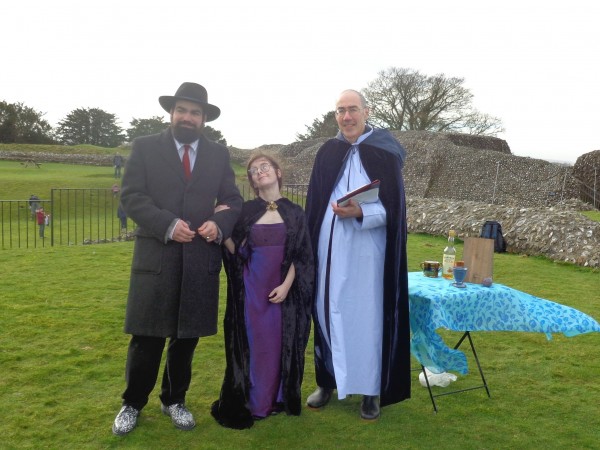As you may be aware, the Law Commission has recently published its recommendations for Weddings. These have gone through to be debated in Parliament. The government will consider the recommendations and prepare legislation, with an interim response produced within six months and the final law within the year.
The Law Society were particularly aiming at two targets with this document. Firstly, to regulate the officiant (rather than the location), and then to agree universal rules for all weddings.
So what is being proposed?
This is only intended to be a resume of the main points, and is subject to my interpretation of the suggestions, so I cannot guarantee accuracy (a fuller report summary can be downloaded here: https://s3-eu-west-2.amazonaws.com/lawcom-prod-storage-11jsxou24uy7q/uploads/2022/07/Weddings-summary-report_.pdf).
Types of Officiant
There will be five types of possible officiant:
- Registration offices
- Anglican clergy (both as at present)
- Nominated officiants (eg religious organisations or Humanists)
- Maritime officiants (conducting civil weddings on cruise ships)
- Independent celebrants
Independent celebrants (the category into which I would fit, of course!) would have to be “fit and proper”, of good character, over the age of 18, with no offences to their name, trained in the legal duties for marriage, and capable of understanding the legal requirements of marriage.
Role
There should be a common set of requirements for all celebrants – mainly, to uphold the dignity and significance of marriage. The legal obligations comprise the three following tasks:
- Ensuring that the couple freely express consent
- Other requirements are fulfilled – eg two witnesses present
- Ensuring that the schedule is signed
Locations
- Any type of location would be possible (not as at present)
- The officiant would have to agree the safety and dignity of the ceremony
Ceremonies
Basically, the same remarks apply to all groups and most weddings.
There would be core requirements (such as expression of consent). Religious content would be allowed in civil weddings, but the ceremony would have to be identifiable as a civil ceremony.
There would be no requirement for open doors.
Conclusion
A lot of consultation and hard thinking has gone into the drafting of these recommendations. I am confident that most will be passed without too much debate. Most of it makes good sense – not least, the underlying implication that the couple can choose the sort of ceremony they want for their big day (which has always been my mantra!).
I am optimistic that the government will be happy to let independent celebrants (not just Humanists, for example) play a legal role in weddings – obviously, under certain restrictions.
I believe that this would be a step forward for the UK, and follow the lead shown by Jersey, as well as Australia, New Zealand and USA.
Watch this space!

